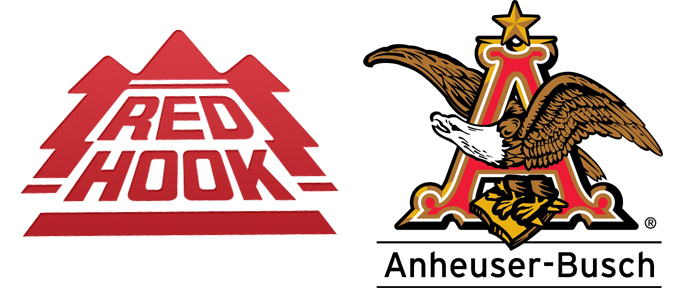Before the Panic Over 10 Barrel, There was ‘Budhook’
The news of Anheuser-Busch’s purchase caused ripples of fear and loathing through the American brewing world. Jim Koch, co-founder of the Boston Beer Co., went so far as to label the move by the world’s biggest brewery a “declaration of war” and told a reporter he was going to re-watch The Empire Strikes Back because he had forgotten who won in the end—the rebels or Darth Vader’s men.
Anheuser-Busch’s purchase was a 25 percent stake in the Independent Ale Co., a Seattle outfit synonymous with its signature Redhook Ale offering. The year was 1994.
Similar fear and loathing, whether truly warranted, has gripped the American brewing world following the recent announcement that Anheuser-Busch, still the world’s biggest brewer (if under new ownership), was purchasing the 10 Barrel Brewing Co. out of Bend, OR, for an undisclosed sum. The move followed A-B’s acquisitions of the Blue Point Brewing Co. on Long Island earlier this year and Chicago’s Goose Island Brewing Co. in 2011.
Most of the concern over A-B’s purchase of 10 Barrel has touched in some way on its takeovers of Blue Point and Goose Island. Most consumers, however, including diehard craft beer fans, do not seem to realize how far back A-B’s interest in smaller, independent breweries goes.
Paul Shipman, a former wine salesman, and Gary Bowker, a writer who a decade before cofounded the coffeehouse that became Starbucks, opened the Independent Ale Co. in the summer of 1982 in an old transmission shop in Seattle. The brewery sold fewer than 1,000 barrels of Redhook Ale that first year; the introduction of a porter in 1983 and an IPA in 1984 boosted consumer interest, and soon the 5,000-square-foot brewery was at capacity.
By the 1990s, it was one of the biggest independently owned breweries in the nation making beer from traditional ingredients. Not only that, but Independent Ale was part of a first wave of initial public offerings in the modern era of American beer. On Aug. 16, 1995, the brewery began trading on NASDAQ for $17 a share under the ticker symbol “HOOK.”
One of the biggest shareholders was Anheuser-Busch, who had bought that 25 percent stake the year before for $18 million. That infusion, coupled with the IPO, not only provided Bowker, Shipman and their partners comfortable remuneration, but allowed the brewery to majorly expand. It’s still very much around, available in most of the United States, and Anheuser-Busch is still a major owner (though not majority owner as in the cases of 10 Barrel, Blue Point and Goose Island).
And the war that Jim Koch and others feared—Koch took to calling Redhook “Budhook”—never came. In fact, since 1994, the number of independently owned breweries using traditional ingredients has ballooned, as has the overall number of breweries in the U.S.
Moreover, a beer culture has arisen that, ironically enough, seeds the debate over whether it’s good, bad or neither that Anheuser-Busch has cut yet another deal for yet another smaller brewery.
Read more Acitelli on History posts.
Tom Acitelli is the author of The Audacity of Hops: The History of America’s Craft Beer Revolution. Reach him on Twitter @tomacitelli.


Great point and nice to have a little historical perspective. Plenty have pointed out that RedHook’s quality and reputation have suffered greatly since the buyout and the fact that they changed the recipe of their signature beer still irks me. Of course that being said we have no way of knowing what the future of RedHook would have been had they not been bought out. With the ultra competitive reality of the craft beer scene they may have not survived or they may have ended up making similar changes even without the buyout.
I lived in Seattle when A-B bought Redhook. Details of the investment were lost on most of us. It was symbolic. Our hometown brewery no longer belonged to us. It belonged to a corporation. The city rejected the brewery for the most part and it had nothing to do with fears or realities about the quality of the beer (personally I never liked their ESB in the first place). It was something bigger than beer. It was about our relationship with the brand, and our definition of craft brewing—something I don’t think any analyst or editorial so far has grasped.
Actually, at the end of the Empire Strikes Back, the Empire was winning.
Sadly, there seems to be nothing that can be done to stem the tide of the “Evil Empire” of beer. The more popular that craft beer becomes, the more of these breweries will fall under the big tent of the AB/INBEV label. And those remaining truly independent breweries will (in fact already have) raise their prices due to demand. Our nation’s beer heritage is being eroded by global corporate influences, and we seem to be powerless to stop it.